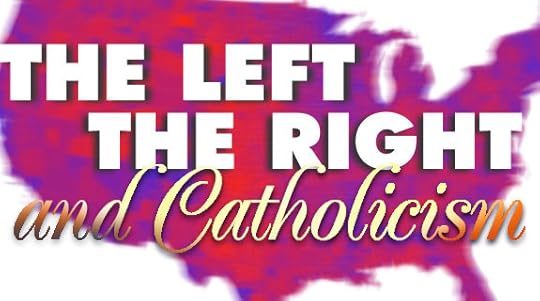The Left, the Right, and Catholicism

by James Kalb | Catholic World Report
Catholicism sees freedom as directed toward the good life, and fills in the details with its understanding of God and man. Liberalism likes to avoid big issues like God, man, and the good, because they cause arguments, so it sees freedom not as freedom to pursue anything in particular but as freedom to choose freely. Freedom is freedom to go after whatever it is you happen to want.
The result of that view, along with the view that freedom is the highest political goal, is that the good life drops out of sight as a public concern. That’s a problem for Catholics who want to promote the good life through politics, because almost all politics today are liberal. Even the battle between liberals and conservatives is mostly a dispute between two groups of liberals. The two sides may differ in their interpretation of freedom, but they agree that it comes first, and that in essence it’s freedom to do whatever you want.
Progressive liberals take a consumer’s point of view, and combine the belief that freedom is simple freedom of choice with egalitarianism and social management. The result is a sort of Burger King “Have It Your Way” vision of freedom: it’s freedom to choose from a menu that’s as long as possible and available equally to everyone. For that kind of freedom to exist, the choices must be independent of the choices other people make. The menu therefore emphasizes choices that can be made individually and separately, like consumer goods and private lifestyle options. Freedom turns out to mean “access” and “tolerance”—a state of affairs in which people are given what they choose from a set list, and they have a right to have other people go along with their choices.
The Obama campaign’s Julia is a model citizen of a progressive liberal society. Her goals are completely private—even when she has a child it’s an entirely personal choice that has nothing to do with anyone else—and her concern as a voter is to have the government give her what she needs to attain her personal goals reliably and comfortably. The campaign makes her an Internet entrepreneur who creates jobs, and so gives her something of a public role, but the description is unpersuasive. A successful entrepreneur is not likely to be someone whose big political concern is whether other people pay for her birth control pills and provide her with a comfortable retirement.
The main alternative to the progressive liberal ideal today is the conservative or classical liberal ideal. Conservative liberals see freedom from a more typically entrepreneurial perspective. For them, freedom is freedom of action rather than freedom to choose among private satisfactions. They therefore favor a setting in which the rules of property and contract, along with public services like roads, schools, and national defense, allow people to form whatever goals they want and pursue them with whatever means they can put together. Everything’s open-ended, and the sky’s the limit, but it’s up to the individual to figure out where he wants to go and how to get there. The conservative version of Julia would therefore be more like an Ayn Rand heroine. Where Julia wants secure enjoyment of daily satisfactions, an Ayn Rand heroine wants adventure, struggle, and creativity. She is as single-mindedly interested in doing whatever it is she wants to do as Julia, but in a very different style.
Carl E. Olson's Blog
- Carl E. Olson's profile
- 20 followers



